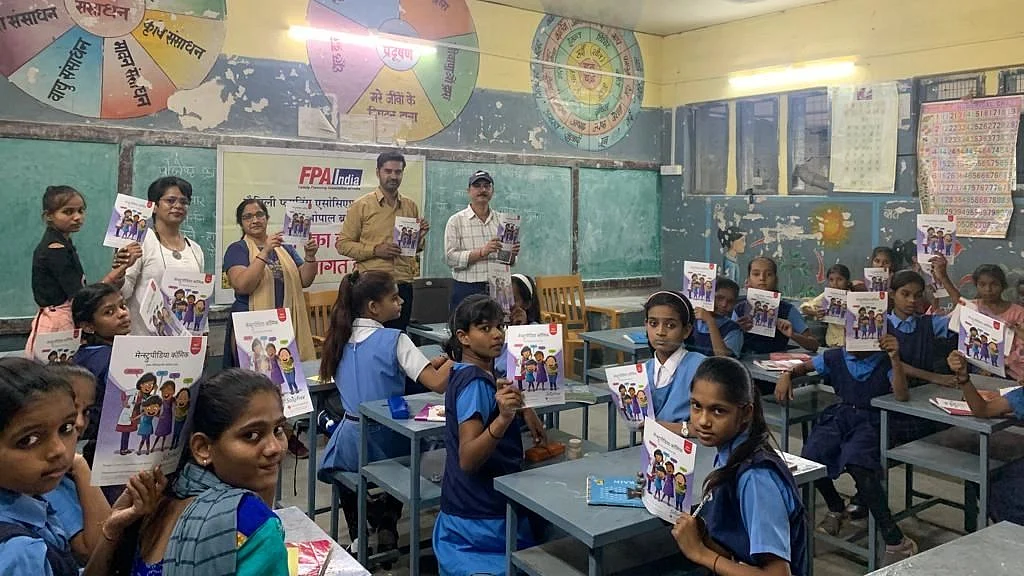Why should menarche deprive little girls of Devi status?
City social activist launches awareness drive on menstrual issues to coincide with Navratri

Bhopal (Madhya Pradesh): Navratri is the celebration of women power, a festival of invoking Shakti - the supreme goddess. And yet, post-puberty girls are not invited to Kanya Bhojs and menstruating women are not allowed to join the worship of the goddess.
“A little girl is told that you were a Devi till last year but you are no longer a Devi because you are past menarche,” says Mita Wadhwa, a social worker.
To dispel these and other misconceptions related with menstruation, Mita has launched a nine-day campaign during Navratri in the city. The idea is to make school girls of the age group 11-13 years aware that there is nothing dirty or polluting about menstruation and in fact, it sort of empowers them, making them capable of reproduction, she says.
Since the beginning of the Navratri, Mita has been visiting two government schools everyday to interact with girl students of grades 6-8. “I have so far interacted with around 800 girls,” she has told the Free Press.
She tells them that menstruation is a biological process, which makes them a real Devi - a creator. “I also distribute to them copies of a book called Menstrupedia Comic, a puberty guide for girls, which explains in a very child-friendly manner about menstruation,” she says.
She also makes them take a pledge that they would remember what has been told to them and would tell it to their mothers, Dadis, Nanis and friends, too.
Mita says that her interaction with young girls over the years shows that taboos related to menstruation are widely practiced even today. And that is true of even well-educated, middle-class urban families. “Students of elite colleges have told me that in their homes they are treated as untouchables during those days. The puja room and the kitchen are strictly out-of-bounds for them,” she says.
Under her ongoing campaign, Mita is not urging the girls to revolt against religious taboos. “It is a sensitive matter and they are too young,” she says. She tells them that earlier, women were kept away from cooking and related works during their periods because it involved hard physical work like fetching water from wells. But now, we get water in our homes through pipelines. So we no longer need that restriction.
Mita says that after a gap of three months she would be visiting the same schools to take feedback. “I will try to find out whether the attitude of the girls has changed,” she adds.
RECENT STORIES
-
-
-
-
-